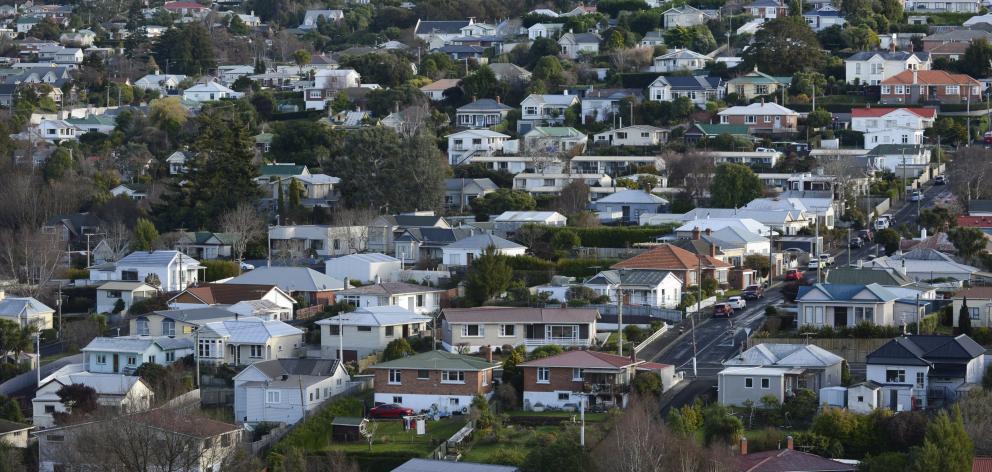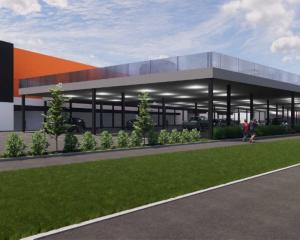
Market data from the Real Estate Institute of New Zealand for November showed homes in and around the city were a fifth more expensive at $520,000 per deal, up from $430,000 last November.
Regionally, average prices in the Clutha district grew by 24% to $280,000 and more than 13% in the Waitaki district to $345,000 on a year on year basis.
However, house prices in the Queenstown-Lakes district continued to reflect resistance to higher prices, average prices down $45,000 per deal in both Queenstown-Lakes and Central Otago, at $945,000 and $530,000 respectively.
Nidd Realty co-owner Liz Nidd said the Dunedin growth had also reflected lower sales volumes, overall sales declining 19.3% to 197.
Despite the high pricing, she said first-home buyers remained prevalent in the Dunedin market.
Those who had "missed out" during the year now stepped up to get on to the property ladder.
On a national basis, median house prices across the country moved up by 8.6% to a record $630,000, up from $580,000 last November, with 10 regions showing record median prices, the REINZ data shows.
Auckland recorded its first annual rise at 2.7% in over a year — the 2335 house sales across the city at the highest November level since 2015.
Kiwibank senior economist Jeremy Couchman said the 5.6% overall gains across the country reflected the strongest rate of house price gains in the past 2½ years.
"Momentum has shifted in the housing market and it is likely to continue to heat up as we move into 2020."
He attributed the cut in the official cash rate by 75 points this year, which had led to record low mortgage rates, as the reason for improved demand.
"In addition, we continue to face housing supply and demand imbalances, exacerbated by population growth which remains well above average with net migration comfortably above 50,000 on an annual basis."
REINZ chief executive officer Bindi Norwell said the properties available for sale nationally declined by 19% in November to just over 22,000, 5300 properties fewer than November 2018, reflecting decreases across the board.
She said the number of homes selling for less than half a million dollars fell from about 39% of the market to less than a third of the market, at 31.5% of the market, while the fastest growing price band was in the $750,000-$1 million category which grew to 19% of all sales (15.5% in 2018).
Of all sales, 1241 homes, or about 17%, had a price tag of $1 million or more.
Comments
As a uni city let us put these prices in perspective; it takes 11 years gross salary for a new grad to buy a Dunedin house which is about 80 years old on average. When I graduated it was 11 MONTHS, not years. I understand why the younger adults are totally despondent. Low interest rates and high immigration have destroyed their chance for home ownership when house prices have increased 10x faster than wages.
For those who still insist first time buyers can get in the market if the stop buying coffee or avocados, a 90k increase in Dunedin house prices equates to an 18,000 increase required for a 20% deposit. That's savings first home buyers would need to make in one year, over and above their current savings, just to keep up with the market.
In the context of our low wage economy and student loans, just to name two big hurdles previous generations didn't have, generational inequality is a freight train disaster that no amount of going without is going to solve.
And to put it into context, what we are seeing here is largely immigration driven. Our population throughout the country has increased more so now than ever before. More people, more homes needed, demand goes up, as do prices based on that demand. So who do we blame? Ourselves, for marketing New Zealand as clean and green for so many years. We are now in the lime light, we're feeling the heat of that light. Every generation has had political and economic problems to waide through. Climate change, rapid population growth and housing is our current issue. All we can do in our time is find our own solutions and work with what we have. Don't let the news media and social media grey your dreams.
It is not generation inequality for that is not comparable but societal inequality. Many people can afford these houses but many cannot and we need a fairer society where all people share the prosperity of business and of NZ, not just the bosses, the owners, those that make it to management, those in private business vs public etc
I attended several open houses a few months ago, and came to the conclusion that people here are now panic buying. And when you look at what you get for $350k here, Christchurch is starting to look good again.











